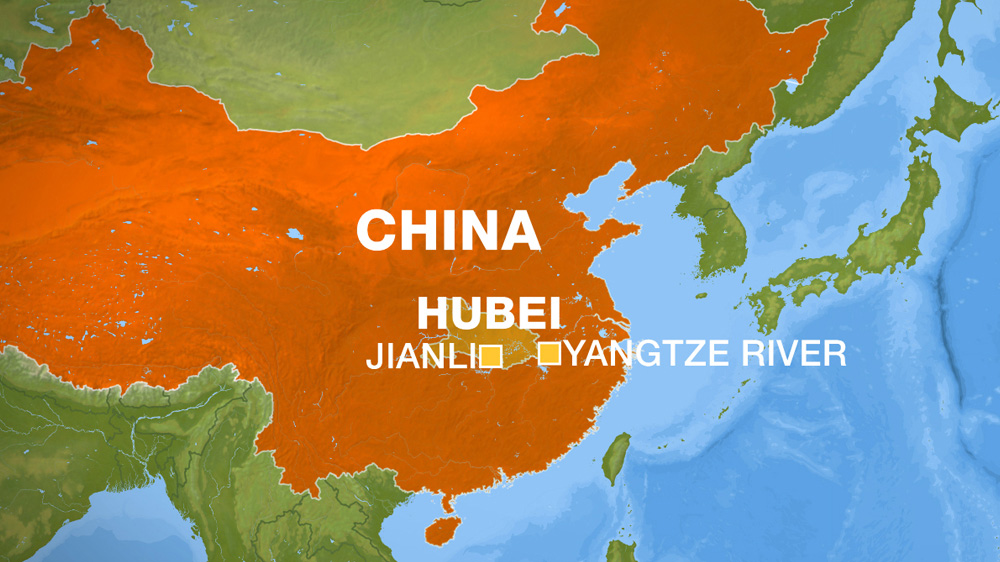China ship death toll rises as families seek answers
At least 65 dead with more than 370 still missing as rescue operations under way amid growing anger among relatives.

The death toll from a cruise ship that capsized on China’s Yangtze River has risen to 65, state television has reported, as grieving families broke through a police cordon to march to the site seeking answers.
Another 39 bodies were recovered overnight, CCTV said on its microblog on Thursday as more than 370 people were still missing.
Only 14 survivors, including the captain, have been found since the ship, Eastern Star, carrying 456 people capsized in a freak tornado on Monday night, in what could be China’s worst shipping disaster in decades.
However, rescuers are not giving up their search of the ship, which was carrying many elderly Chinese tourists, despite the fading hopes of relatives.
They plan to cut a small rectangular hole through the Eastern Star’s upturned hull to get better access, the official Xinhua news agency reported.
|
|
Frustrated by the level of information coming from local authorities, about 80 family members hired a bus to take them from Nanjing to Jianli county in Hubei, an eight-hour journey.
They were seen walking towards the rescue site late on Wednesday evening.
“This isn’t going to be much use, we’re just doing this for the government to see,” Wang Feng, one of the organisers, said.
The protesters later broke through a cordon of 20 to 25 paramilitary police who had tried to prevent them from going through a roadblock.
Volunteers from Jianli offered rides and water to the relatives. Some people tied yellow ribbons on their car side mirrors.
Earlier, 47 of the relatives asked the Chinese government to release the names of the living and the dead to them at the rescue site, according to a statement.
In a separate statement, other relatives questioned why most of the people rescued were crew members, why the boat did not dock, and why the captain and crew members had time to don their life vests but not sound an alarm.

The ship was on an 11-day voyage upstream from Nanjing, near Shanghai, to Chongqing.
The People’s Daily said the ship passed inspections by authorities in Chongqing last month. But according to documents from a local maritime watchdog, it was investigated and held by authorities due to defects in 2013.
The Nanjing Maritime Safety Administration investigated Eastern Star as part of a safety campaign into passenger ferries and tour boats and held the ship along with five other vessels, according to three documents on the bureau’s website.
The documents gave no details on the defects but said the issues were reported to the Chongqing maritime safety bureau.
FIELD NOTES FROM OUR CORRESPONDENT
